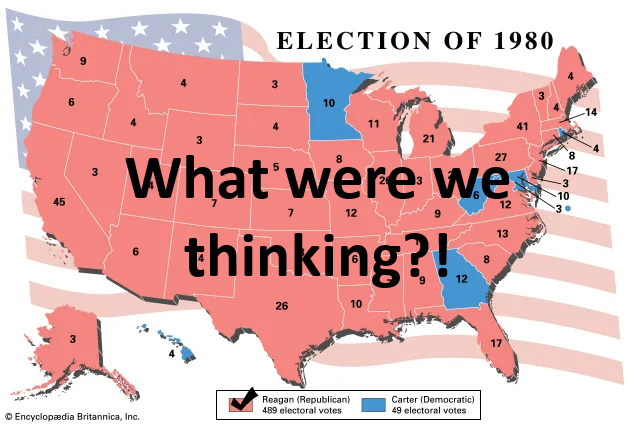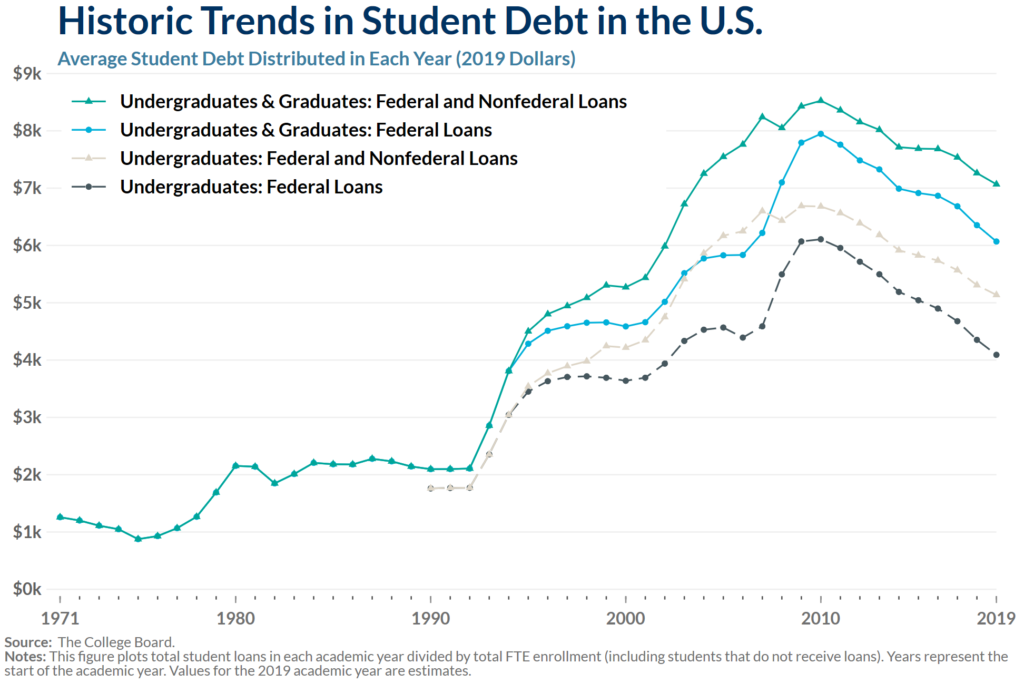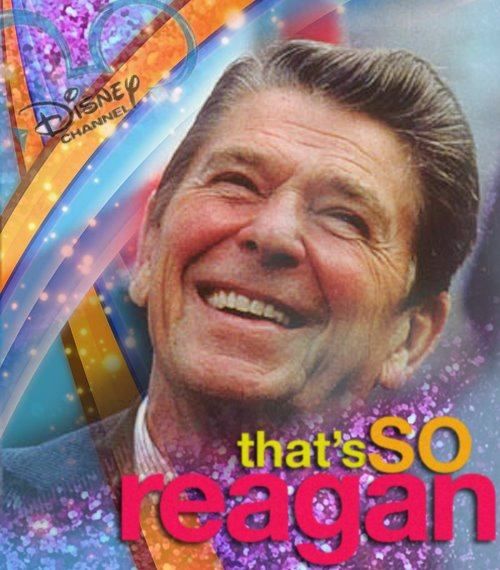Ronald Reagan's Effect on Dragon Age
Leave us alone, Ronald!

In the dark year of 1980, the worst person you know won the presidency in a landslide victory: Ronald Reagan. Throughout his presidency, he halted the rise of minimum wage, granted tax cuts to the rich, and cut several programs including welfare which left hundreds of thousands of families without income. Close your eyes and think of something you dislike about the United States. That thing you're thinking of? That was probably Reagan's fault. He halted the previously regular increase of the federal minimum wage, contributed to the student debt crisis through tuition increases, and don't even get me started on Reaganomics. I'm still waiting for all that money to trickle down. Where's the money, Ronald? Where is it?

With his win, New Deal Democrats started dwindling in numbers. Now, this wasn't 100% Reagan's fault. Jimmy Carter's presidency was riddled with deregulation and record inflation as he bounced between the aisles. However, if Carter built the coffin, Reagan nailed it shut. After he had another landslide victory in 1984, Democrats began to think hard about how Reagan was so darn popular. Instead of trying to topple his legacy and dismantle any harm he's ever done, they decided to adopt his methods instead and chase that popularity. Of course, they dress it up a little differently. While Reagan wanted to simply wipe certain slates clean, Democrats wanted to distance themselves. A "one foot on base" sort of ideology.
For example, Bill Clinton made it significantly harder to get welfare benefits with the Personal Responsibility and Work Opportunity Reconciliation Act. This enacted limits on how long people can collect welfare and work requirements. Thus, the number of families collecting welfare declined, and the poor got poorer. He also expanded the death penalty with the Violent Crime Control and Law Enforcement Act. Now I don't know about you but I am of the mind that state-sponsored murder is bad! Reagan fueled the mass incarceration crisis, disproportionately placing marginalized people behind bars, but the Democrats sure pushed it further. On top of that, many are wrongfully accused without a retrial, leaving innocent people to be sentenced to death with the expansion of these policies.

I can't necessarily say Democrats haven't passed a good policy since Ronald Reagan started haunting the country, but they have certainly begun passing more and more policies that Republicans of the day would likely drool over. This brings us to now, where we have a sitting president whose most notable accomplishments are fueling mass incarceration, perpetuating genocide in the Middle East, and letting a woman's right to choose crumble to dust in multiple states. Not to mention the four years of fascist doom we have coming up. Many Americans probably distance themselves from politics at this point. I get it! It's exhausting to live here! However, Reagan has unfortunately gotten his grubby mitts on things outside of D.C., including our entertainment.
Recently, Bioware released another installment of their beloved franchise, Dragon Age Veilguard. I, of course, have been playing a lot of Veilguard because I am a feral ghoul who wants to yearn and fight demons. Yet, I cannot help but frown at my memories of the previous installment, Inquisition, and its perpetuation of the same Reagan-cursed liberal politics detailed above.
Dragon Age Inquisition puts the player in charge of a church, The Chantry, organization that dedicates themselves to normally fighting magic in extreme circumstances, but now faces a demon threat leaking through several portals in the sky. Historically, inquisitions formed to squash divergent religions through deportations, mass murder, and torture. So, placing the player in charge of one feels off given the historical context. It is of course possible to make decisions the Chantry does not sanction, including affiliating with the now marginalized mages if the player chooses them over the Chantry police department, the Templars. However, this does not cause enough of a rift to fully separate the Inquisition from the Chantry.
Throughout the series, the Chantry perpetuates consistent violence, heavily policing mages until eventually deciding to just kill them outright after the Chantry blows up in the city of Kirkwall. Within Inquisition, there are many moments where the player can talk quite sternly to a Chantry representative, but their grasp on several devout characters, like Leliana and Cassandra, seems to keep the Chantry immune to any real commentary and consequence.
Despite all the harm it has done, the player has the chance to choose the new Chantry leader, the Divine, maintaining the system that has wrought tragedy after tragedy. There is an allergy to the idea of dismantling systems entirely. That despite being broken, if there's a loose bandaid on it, all will be fine. After all, if the Chantry falls then so many would lose power. "But how will people worship?" the masses of Thedas cry out. The Chantry along with any real head of an organized religion does not dictate whether or not you worship. If the Pope were to disappear, Catholics could and would still exist. Organized religion being present is not the end all be all of faith.
As the player continues along with running an organization previously known for killing mages, a wide range of characters get drafted into their inner circle. I wish to focus on one, in particular, Solas. Solas is an Elven mage that many have rightfully given the nickname "egg." He's reclusive, but sweet when you spend more time with him. He cares for his people and envisions a world in which Elves can live free once again. Then, of course, comes the Trespasser DLC. After the breaches have been closed, the player joins peace talks that get interrupted by a Qunari plot to invade several parts of Thedas. This is eventually foiled by Solas, who then reveals himself to be an Elven god who created the barrier, the veil, between the magical plane called the Fade and the world. He originally did so to imprison the Elven gods who became mad with power, but this in turn took away Elven immortality and has somehow led to the Elves' overall marginalization. Essentially, Elves "did it to themselves.”

He now wants to correct this mistake, though! He wishes to tear down the Veil and restore the Elves’ connection to the Fade. The catch is that this process could destroy the world. Leading to his uprising and plan to free the Elves being viewed as bad and must be stopped. There's a lot of writing in entertainment that displays villains as those with good points that are just too violent and thus bad. They aren't combating the issues in the right way. In Black Panther, Killmonger yearns for Wakanda to battle the systemic oppression of Black people around the world. However, he is a murderer! He is covered in marks that represent his kills and wants to plunge Wakanda into a global war. Thus, his entire point is moot. Wakanda, of course, becomes less isolated but decides to help through the already established systems. They become more involved in global politics and join the UN. They build community centers around the United States. To establishment Democrat ideals, there is a correct way to protest and combat inequality: through charitable donations and programs/organizations that already exist. Nothing can be dismantled and the man who just wanted to see Black people truly free had to die in the process.
As I said previously, I've begun playing Veilguard and keep saying to myself, "Hey maybe they'll shy further away from this trend." So far, it's better. Solas is no longer the villain. Instead, he's banished to a magical prison the player can visit in their dreams. The conversations with him have been great, and nuanced, and he hasn't shied from his desire to give power back to the Elves. There is, of course, the overhead idea that they caused their own oppression, and now with the added fact that the Blights, periods of evil creatures infecting a dragon and invading Thedas, were caused by the Elven gods. However, I will say that the greater emphasis on the gods being at fault does at the very least place some blame on the powerful elites in some form.

Reagan prided himself on the idea that the government was never helpful and that individual responsibility was necessary. Are you on welfare? That's your fault. Are you in severe debt because you went to college? You shouldn't have applied. There's a theme of those being beaten down crying out only to get told they did it to themselves and that they should "pull themselves up by their bootstraps." It's a grand campaign to convince people that the hurdles they face are ones they put up themselves. With that infection of an idea, people are less likely to point out the real faults. When some shake the idea and start doing just that, they are pointing them out incorrectly. They protest too loudly. They disrupt too much.
Yet when they do, the system of oppression slows, and the powerful get nervous. It’s so important to not perpetuate this constant loop of being complicit. With Veilguard, I hope Solas doesn't become a martyr for a cause that the player was forced to judge them on. I hope that he gets to see the Elves be free. Most of all, I hope that I get to see Reagan's cold grasp on this country loosens more and more, until finally withering away into a distant memory.
Edited by Marie Bogdanoff